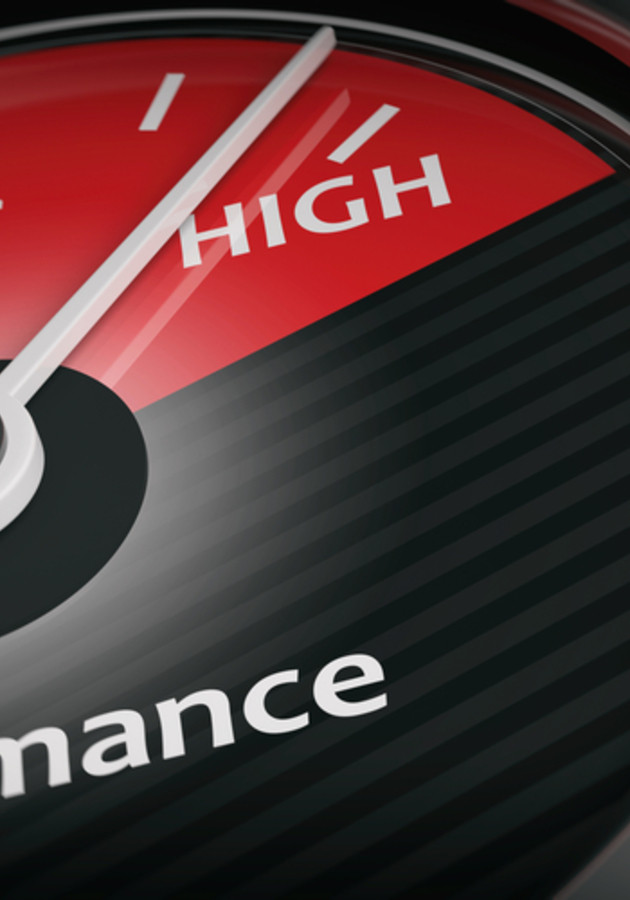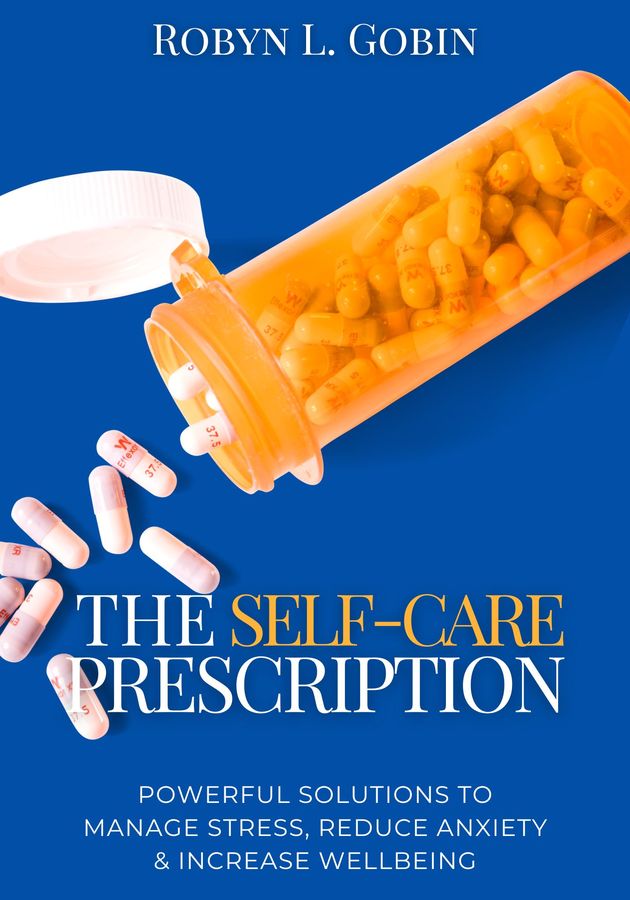Early in his career, renowned motivational coach Brendon Burchard received an email from a client named Tom that changed both his life and his worldview. In the email, Tom complained about being pigeonholed by good-for-nothing personality tests such as the Myers-Briggs and the Clifton StrengthsFinder since all of them seemed to care more about his background than about his potential. “I need to know what to do, Brandon,” he wrote. “So, please tell me what practices work regardless of personality?”
Burchard spent the next decade thinking about the content of that email. After extensive research, he discovered that Tom was absolutely right and that success wasn’t really achieved by a specific type of person but rather by “people from all walks of life who enact a specific set of practices.” Survey after survey, he narrowed down this set to 18 different practices which he conveniently grouped into six meta-habits. Ever since, he has referred to these habits as “the high performance habits,” or HP6 for short. Get ready to learn more about them and prepare to discover how to use them to attain the life you’ve always wanted!
Habit No. 1: Seek clarity
Compared to most other people, high performers “have more clarity on who they are, what they want, how to get it, and what they find meaningful and fulfilling.” Put otherwise, unlike the average person, high performers know the answers to certain fundamental questions such as, “Who am I?,” “What are my goals?” and “What’s my plan?” The good news is that even if you don’t have high clarity in your life at the moment, there are practices that can help you generate it. Such are the following three:
- Envision the Future Four. There are four areas you must be clear about at all times in your life: your self, your social world, your skills, and your service to others. These are what Burchard calls the Future Four. So, go beyond introspection and knowing thyself: imagine thyself in the future and give yourself permission to live with definite intention. Think about how you want to treat other people and start anticipating positive social interactions. Be clear about the skill sets you need to develop now in order to win in the future. Finally, discover how you can make a difference and introduce value in other people’s lives with excellence and integrity.
- Determine the feeling you’re after. Ask yourself frequently, “What is the primary feeling I want to bring to this situation, and what is the primary feeling I want to get from this situation?” Rather than merely living through the emotions that “land” on you, start generating the feelings you want to consistently experience and share with others in life.
- Define what’s meaningful. “Not everything that is achievable is important, and so achievement is not the issue – alignment is,” writes Burchard. In other words, there’s little difference between not achieving anything in life and achieving the wrong thing: both will seem meaningless to you. To find meaning, look for things that bring you enthusiasm, connection and satisfaction. Whatever you want to do, don’t do it before asking yourself, “How can I make this effort personally meaningful to me?”
Habit No. 2: Generate energy
You don’t need researchers or scientific study to tell you that low energy correlates with low productivity, as well as low levels of confidence, enthusiasm and happiness. Unfortunately, you already know this. The good news is that you know that the flip side also applies: by simply increasing your energy, you can increase your productivity, creativity, assertiveness, educational attainment – and overall happiness. According to Burchard, it’s not that difficult to increase your energy. The following three practices should help.
- Release tension, set intention. Our days consist of a series of transitions: from rest to activation, from family time to drive time, from solitary time to office time, etc. Most people lose tremendous amounts of energy by managing these transitions poorly. In the future, as you move from one activity to another, try the following. Close your eyes first and start breathing deeply. Then start repeating the word “release” in your mind, while commanding your body to relax and unwind. Once that happens, start thinking about what you want to feel and achieve in the activity that follows. That’s it. As simple as this activity might seem, it’s remarkably powerful. Repeat it several times a day.
- Bring the joy. “Most folks are about as happy as they make up their minds to be,” Abraham Lincoln once said. As in the case of a few other things, he was right about this one as well! So, take over the reins today. After all, happiness is not something ready-made, but something that stems from your own actions. Start bringing joy to your activities by anticipating positive outcomes from the get-go. Set triggers to remind you to be optimistic and grateful. Especially the latter. You must appreciate what you have in the present to get more in the future.
- Optimize health. They say that whereas a healthy person has a thousand wishes, a sick one has only one – to be healthy. So, don’t take your health for granted. Start taking sleep, exercise, and nutrition more seriously. It’s not even necessary to go into details here, because, let’s face it, you already know what you should be doing to be fit and healthy. Well, start doing it! It’s that simple.
Habit No. 3: Raise necessity
There’s a good reason why a mother can lift up a car to save her screaming child; in a word, it’s called necessity. It’s necessity, more than anything, that drives progress, invention, creativity – and high performance as well. Otherwise stated, unless you believe it’s absolutely necessary to excel, you will never become extraordinary. According to Burchard, performance necessity is all about proper, deeply rooted motivation. Its four driving forces are two internal (identity and obsession) and two external factors (duty and urgency). To simulate all of them, use the following three practices:
- Know who needs your A game. To be good, you must be good for something. To remind yourself of this simple truth, from now on, whenever you sit down at your desk, try asking yourself the following two questions: “Who needs me on my A game the most right now? What about my identity and external obligations makes it imperative for me to deliver today?”
- Affirm the “why.” “Whoever has a ‘why,’” wrote German philosopher Friedrich Nietzsche in “The Twilight of the Idols,” “can bear almost any ‘how.’” So, the next time you want to motivate yourself to do something, try reminding yourself of your “why.” Even better, start repeating your “why” to yourself and others out loud and often, even several times a day. Your brain is programmed to think of things said out loud as more real and more important than things only thought in passing. So, trick it – for your benefit!
- Level up your squad. High performers spend more time with positive people than negative people. Moreover, they usually choose to work with people that are above their level of competence, experience and overall success. Do the same. Start building your “ideal network of supportive and empowering people” by volunteering, playing sports, seeking mentorship and adding new friends. Also, work hard. The best way to meet extraordinary people is to become extraordinary yourself.
Habit No. 4: Increase productivity
The first three of the six high performance habits can be thought of as personal, in that whether one will develop them or not depends solely on their independent efforts. Conversely, the second three of the six are social habits, meaning, they can only be developed in relation to other people. The transitional habit between these two meta-categories is that of productivity. High performers, explains Burchard, aren’t just busy, but highly effective. Put otherwise, rather than doing everything, they focus on doing a few things well, which are the ones that truly matter. Not only do they prioritize tasks, but they also eliminate distractions and, most importantly, know when to take breaks. They also practice the following three habits.
- Increase the outputs that matter. Michael Jordan made more shots than any of his peers not merely because he was a better shooter than most of them, but also because he dared to take more shots. Mozart, Beethoven, the Beatles, Louis Armstrong – they were all immensely prolific. By creating more, they were, in fact, experimenting more. Thus, they gave themselves a chance to learn how to improve faster. The caveat is that they didn’t just produce anything – but the thing that mattered. Aim for something similar. Discover your relevant “prolific quality output” (or PQO) and focus on it. “The main thing,” says Burchard, “is to keep the main thing the main thing.”
- Chart your five moves. In relation to any of your goals, ask yourself the following question: “If there were only five major moves to make this goal happen, what would they be?” Don’t stop there, however. Once you discern the five big moves that should get you to your goal, break them down further into tasks and deadlines, and put them in a calendar in the form of activities. Schedule and plan almost everything – from meetings to vacations, from workouts to learning. All high performers do.
- Get insanely good at key skills (progressive mastery). Imagine the best version of yourself three years from now and determine which five major skills that future “you” would have needed to acquire to get where he is. Then, start developing those skills “with obsessive focus.” Set specific goals, identify the factors critical to success, schedule challenging practices and constantly measure your progress. Make the next move only after becoming proficient at the current one.
Habit No. 5: Develop influence
As celebrated astronomer Carl Sagan once said, we’re neither who we say we are nor who we want to be. Rather, “We are the sum of the influence and impact that we have, in our lives, on others.” Most high performers are influencers as well. They serve as role models for other people, shaping their worldviews and challenging them to ever newer heights. If you want to emulate them and gain influence with others, use the following three practices:
- Teach people how to think. Most people try to teach other people what to think; influencers succeed in their attempts because they teach them how to think. Rather than affirmatives, they use questions and hypotheticals, such as, “What would happen if we tried…?” or, “What if we thought about it this way?” “In every situation of influence,” advises Burchard, “prepare by asking yourself how do you want other people to think about (a) themselves, (b) other people, and (c) the world at large. Then go communicate that consistently.”
- Challenge people to grow. Nobody likes to remain stuck in place. That’s why people like people who challenge them to grow. High performers are good at doing this because they are good at observing other people’s characters, connections, and contributions. Start doing the same. Ask others “if they gave their all, if they could be treating those around them better, and if they could give even more or serve with even greater excellence and distinction.”
- Role model the way. Interestingly, 71% percent of high performers say they think about being a role model daily. When was the last time you thought about that? You must change your life. Act in such a manner that, if others follow it, you will be glad to say they got it from you. Be an example – at your house, among your friends, for the greater community.
Habit No. 6: Demonstrate courage
According to Burchard, not only is courage significantly correlated with high performance, but it is also correlated to higher scores on all other HP6. In other words, just by developing greater courage, you’ll develop more clarity, energy, necessity, productivity and influence in your life. To do so, you’ll need the following three high performance practices.
- Honor the struggle. Struggle is an inevitable part of the human experience. Accepting this simple and obvious fact is the first step toward bringing out the best in yourself. “When we learn to see struggle as a necessary, important, and positive part of our journey, then we can find true peace and personal power,” comments Burchard.
- Share your truth and ambitions. The main motivation of humankind is personal freedom. More than anything, we want to be able to pursue our dreams without any restriction. Unfortunately, in life, we often do the very opposite, minimizing ourselves and failing to express our true ambitions so as to not make other people feel bad about themselves. The truth is most people like people who are authentic and driven and dislike people who are fake. So, live your truth. Share your truth and ambitions with the world. Then, prove yourself worthy of them!
- Find someone to fight for. High performers always have someone to fight for. And more often than not, that someone is just one person. Find that person and use his or her well-being as your driving force. “We will do more for others than for ourselves,” remarks Burchard. “And in doing something for others, we find our reason for courage, and our cause for focus and excellence. We need a noble cause to rise for.”
Final notes
Even though it sometimes feels like an inferior version of Stephen Covey’s similarly titled classic “The 7 Habits of Highly Effective People,” Burchard’s extensive research and his recognizably inspirational and energy-bursting style make “High Performance Habits” a worthy addition to any shelf of personal development and productivity books.
We didn’t like the upselling, though. But you can skip through it if you don’t like it either.
12min tip
If you want to be successful, don’t ever leave things up to motivation or willpower: build systems that will keep you going even when you don’t want to. After all, as motivational speaker Jim Rohn once said, “Motivation is what gets you started. Habit is what keeps you going.”





























